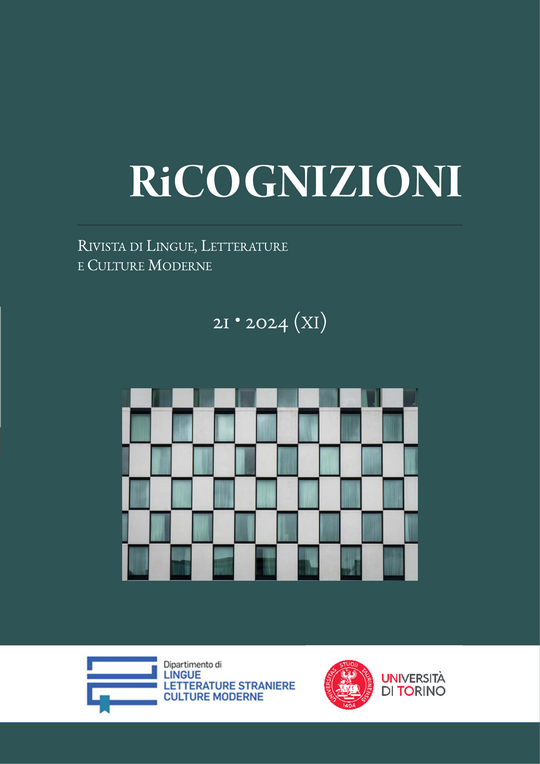Europe and its Languages
The Fluctuating Ambiguity
DOI:
https://doi.org/10.13135/2384-8987/10144Keywords:
Europe, Plurilingualism, Essence of Language, Linguistic PolicyAbstract
Europe and its Languages: The Fluctuating Ambiguity. Humanity has never given up
the quest for the perfect language. From the lingua franca to the construction of a perfectly rational
multilingual algorithmic code that would deliver us from what we believe to be the curse of Babel;
automatic language processing has revived the dream of a standardized multilingual communication
tool, fully motivated, transparent, angelic, without loss or redundancy. But the more analytically
coherent and semantically bi-univocal a language is, the less able it is to signify the world and ideas.
Indeed, speaking is not just about communicating, it is also about putting thought into dialogue with
itself, so that it can exist with others in the polis. By delegating the encounter between people to
artificial intelligence, has mankind been foolish enough to try to resolve the “faltering equivocality of
the world”? Let us explore how European thought, since Antiquity, has envisaged the essence of
language; perhaps we can catch a glimpse of Europe’s Being?
Downloads
Published
How to Cite
Issue
Section
License
RiCognizioni is published under a Creative Commons Attribution 4.0 International License.
With the licence CC-BY, authors retain the copyright, allowing anyone to download, reuse, re-print, modify, distribute and/or copy their contribution. The work must be properly attributed to its author.
It is not necessary to ask further permissions both to author or journal board.








